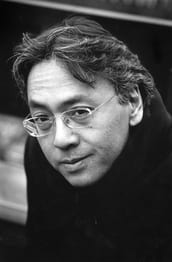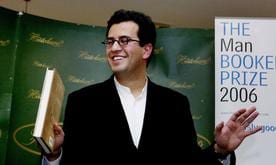One Day in the City: In conversation with Kazuo Ishiguro
By zclef78, on 4 July 2014
An unmissable event – UCL’s One Day in the City and Harper’s Bazaar came together to host John Mullan, head of UCL English Language & Literature and former Man Booker judge, in conversation with Kazuo Ishiguro in the packed Darwin Lecture Theatre.
The Booker Prize winning author was on form. In a day devoted to London in fiction, Ishiguro, or Ish, as he was called by John, announced “I came to explain why I don’t set my novels in London… I’m a bit anti-London.” Excellent start.
The conversation ranged extensively from settings in fiction to Ishiguro’s literary method, writers in London and the peccancy of political naivety in an author.
Ish established from the start the distinction between a novel’s setting and its world: “every novel should have a strong sense of its own world, whether it be severe, bizarre, dark or noire-ish… and the psychological and physical laws that operate in that world.”
The setting, meanwhile, has more to do with the public preconception of a place such as London, Paris in the 20s or New York in the 80s. He cautioned against the use of a setting without acknowledging its reverberations – what kind of noise it creates – adding wryly that “a writer who uses a setting like Nazi Germany without taking into account the Nazis is at best naïve.”
Ishiguro’s antagonistic relationship with settings began with his early novels A Pale View of the Hills (1982) and An Artist of the Floating World (1986). Westerners, knowing little about Japan, tended to take his novels too literally within the context of their Japanese setting. They assumed that he was trying to teach the reader about the Japanese mindset of the time.
 Close
Close




